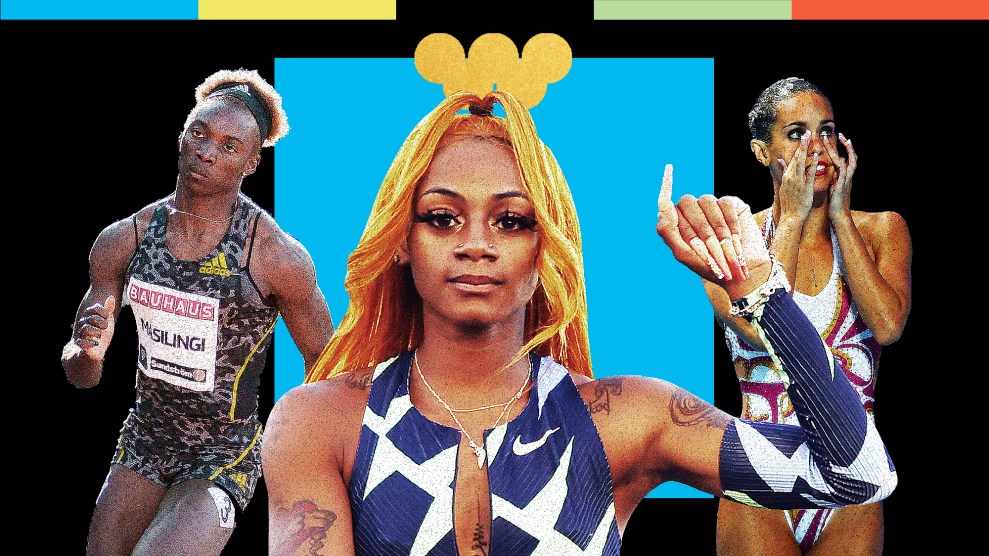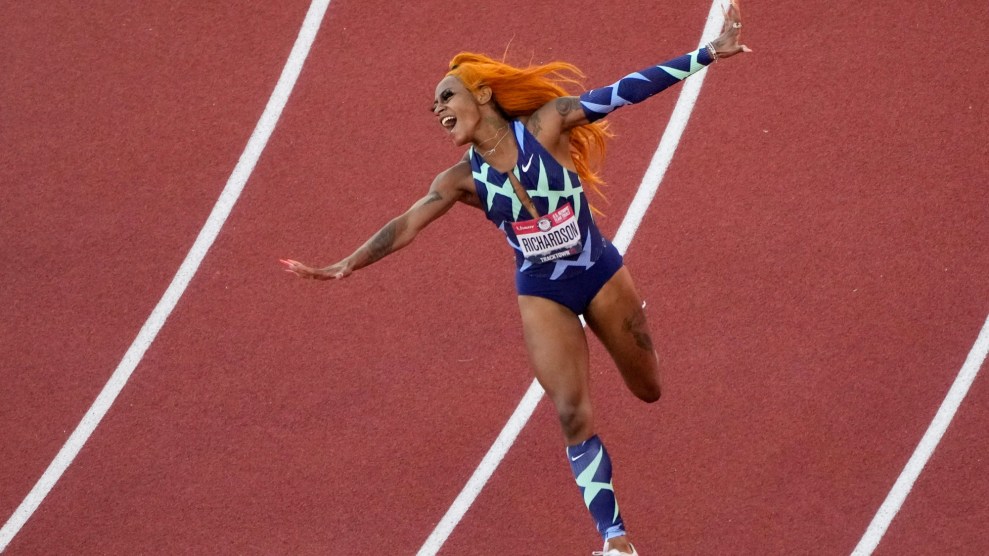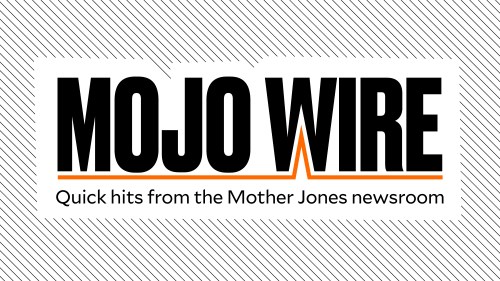
Beatrice Masilingi, Sha’Carri Richardson and Ona CarbonellMother Jones illustration; Getty; ZUMA Press
As the pandemic continues to wreak havoc around the globe, and the cost of the Tokyo Olympics skyrockets, the International Olympic Committee and its satellite arms are busying themselves by cracking down on dress codes, recreational drug use, and peaceful protests—you know, the important stuff.
We’re keeping track of its inane policing:
- Namibia’s National Olympic Committee disqualifies 18-year-old athletes Christine Mboma and Beatrice Masilingi from running the women’s 400-meter race due to testosterone levels that the committee said were too high to let them compete. (In sex-testing athletes, “people are overdetermining testosterone’s effects in ways that don’t fit with what we know scientifically,” Stanford bioethicist Katrina Karkazis told us in 2016.)
- Sha’Carri Richardson, a US favorite for the women’s 100-meter sprint, is caught with pot in her system and suspended for 30 days—meaning she won’t be able to compete in the event in Tokyo. Writes Mother Jones‘ Nathalie Baptiste: “Did smoking a little weed give her any kind of unfair advantage? No. Did she break the law? No. Richardson smoked in Oregon, where adults are legally allowed to partake. Simply put, it’s an archaic rule and, of course, it impacts vulnerable women.”
- Soul Cap, a company that makes headwear specifically for more voluminous hair types, is rejected by the International Swimming Federation (FINA), meaning Black swimmers can’t use its caps at the Olympics. (FINA later said it is “reviewing” its decision.)
- Spanish synchronized swimmer Ona Carbonell’s son Kai, who is still breastfeeding, is forbidden from staying in Tokyo’s Olympic Village with his mother (and source of critical sustenance) during the Games.
Spanish swimmer Ona Carbonell chose to not bring her breastfeeding son and husband to the #Tokyo2020 Olympics as she felt the conditions set by the Japanese government were too restrictive https://t.co/3kE0lYHUyg pic.twitter.com/XYvWjBuNUq
— Reuters (@Reuters) July 22, 2021
- The International Olympic Committee and Tokyo organizers ban their social media teams from posting photos of any athletes taking a knee in protest before an event, even though the IOC recently relaxed its rules to allow acts of protest inside Olympic venues—except if it is targeted, disruptive, or happens on the podium.
- Australian showjumper Jamie Kermond is banned from the country’s Olympic team after testing positive for cocaine. Kermond, who was set to make his Olympic debut, stated he’d indulged recreationally one time. Cocaine falls under the World Anti-Doping Agency’s list of banned substances, a sprawling and idiotic exercise in authoritarian control whose only virtue is that it introduced the world to the hilariously monikered Dick Pound.
Top image credit: Mother Jones illustration; Joel Marklund/Bildbyran via ZUMA Press; Patrick Smith/Getty Images; Clive Rose/Getty Images














